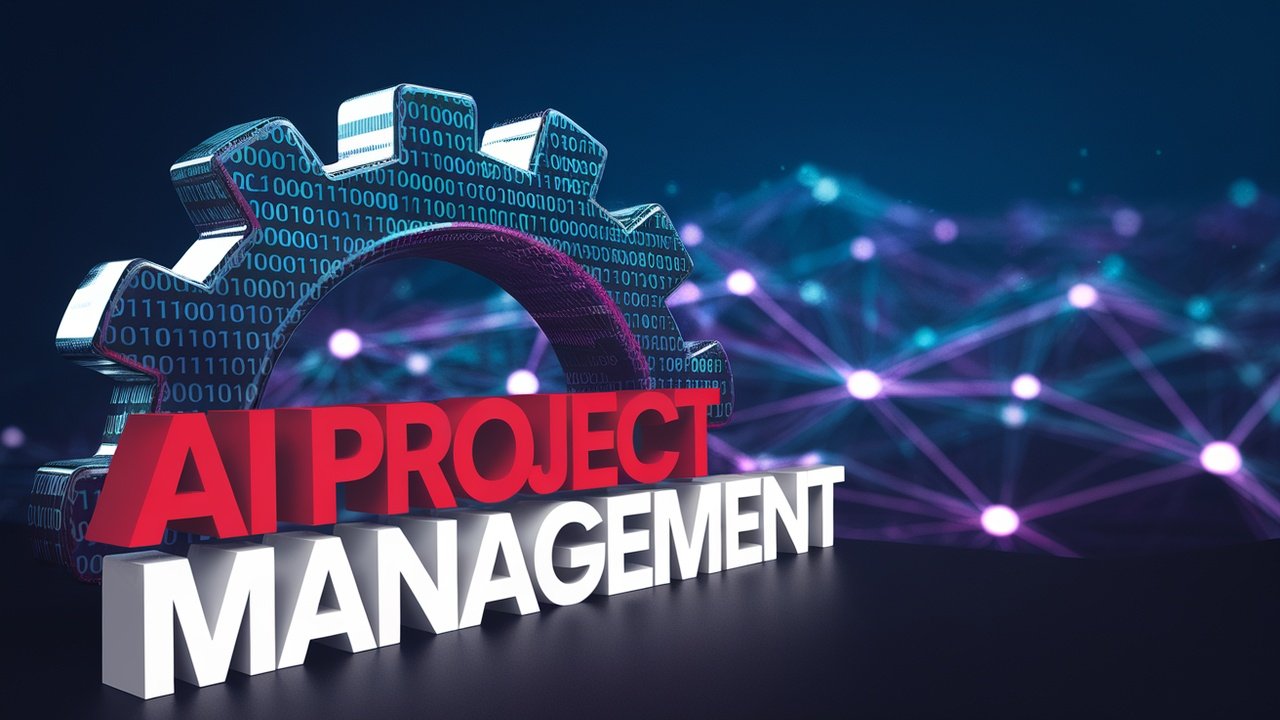Effective Project Management Using AI: The Future is Now
Project management is evolving rapidly. Are you keeping up? Managing projects has always been a complex task—tracking deadlines, allocating resources, predicting risks, and ensuring everything stays on schedule. In today’s fast-paced world, Artificial Intelligence (AI) is transforming the way projects are managed, making workflows more efficient and decision-making more data-driven. But how exactly is AI revolutionizing project management, and how can you leverage AI-powered tools to enhance efficiency and reduce stress? Let’s explore.
The Challenges of Traditional Project Management
Before we dive into AI-powered solutions, it's important to acknowledge some of the biggest challenges in traditional project management. Many project managers struggle with task overload, as they are bogged down with manual updates, notifications, and follow-ups. Meetings can become inefficient, often resulting in endless discussions without clear action points. Missed deadlines are another frequent issue, mainly due to the lack of predictive insights, leading to last-minute chaos. Additionally, manual reporting consumes valuable time, with hours wasted on compiling status updates instead of focusing on strategy and execution. These inefficiencies slow down projects, reduce productivity, and increase stress for both project managers and their teams. But AI is changing the game.
How AI is Transforming Project Management
AI enhances project management by automating routine tasks, analyzing vast amounts of data, and providing actionable insights. One of the biggest advantages is AI-powered task automation. Tools like ClickUp AI and Jira AI Assistant can automatically assign tasks, update statuses, and prioritize activities based on workload and deadlines. Instead of manually tracking progress, AI scans project updates and marks tasks as “In Progress” or “Completed,” reducing human errors and freeing up time for strategic decision-making.
Another significant impact of AI is in predictive analytics for risk management. AI-powered systems analyze historical data and current project trends to forecast potential delays and risks before they occur. For example, if a specific task is taking longer than expected, AI can detect the delay and suggest reallocating resources to prevent bottlenecks. AI also plays a crucial role in smart scheduling and resource allocation. AI-driven tools like Microsoft Copilot and Notion AI analyze calendars, time zones, and workloads to optimize meeting times and resource distribution. If a team member is overloaded, AI identifies this and suggests reassigning tasks to balance the workload effectively.
Furthermore, AI is revolutionizing reporting and insights. Instead of spending hours compiling reports, AI tools generate real-time project summaries, risk assessments, and performance analytics within seconds. Imagine receiving a weekly status report that summarizes progress, identifies risks, and suggests corrective actions—all automated and data-driven.
Best AI Tools for Project Management
Several powerful AI-driven project management tools are available today, making it easier than ever to streamline workflows and enhance efficiency. ClickUp AI automates task management and optimizes workflows, while Jira AI Assistant detects project bottlenecks and predicts risks. Notion AI is excellent for summarizing project notes and generating smart documentation, while Trello AI enhances task automation for teams. Microsoft Copilot is another game-changer, offering AI-powered scheduling, reporting, and workflow automation. By leveraging these tools, project managers can reduce manual work and make smarter, data-driven decisions.
AI in Decision-Making & Risk Management
One of the most exciting aspects of AI in project management is its ability to enhance decision-making through data-driven insights. AI helps project managers identify risks early, flagging potential project delays and suggesting solutions before they escalate. It also optimizes budgets by recommending cost-saving strategies based on past expenses and trends. Additionally, AI can track team performance, evaluating productivity and highlighting areas for improvement. For example, if a project is running over budget, AI can analyze expenditure patterns and suggest areas where costs can be reduced without compromising quality.
The Future of AI in Project Management
AI in project management is just getting started, and its potential is limitless. In the near future, we can expect AI-powered virtual project managers capable of handling complex workflows autonomously. AI will also optimize project timelines in real-time, adjusting schedules based on live data and external factors. Additionally, the integration of AI with augmented reality (AR) could enhance project visualization, allowing teams to collaborate in more interactive and immersive ways. Project managers who embrace AI today will gain a significant competitive advantage as these technologies continue to evolve.
Final Thoughts: AI is Here to Empower, Not Replace
AI is not replacing project managers—it is empowering them. By automating repetitive tasks, providing predictive insights, and enabling smarter decision-making, AI allows project managers to focus on high-value work such as leadership, strategy, and innovation. The rise of AI in project management is not just a passing trend; it is a fundamental shift in how projects are executed and optimized.


